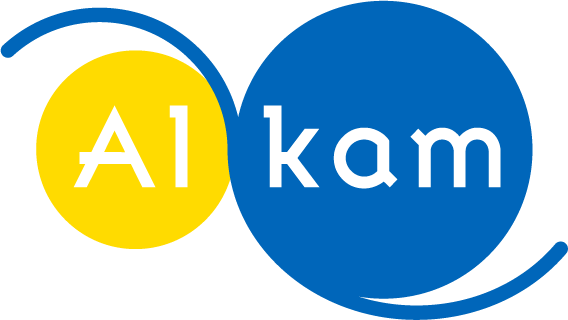How interactive labeling can transform the dialogue between company and consumer
- Alkam
- Feb 26
- 2 min read
Index
Introduction
What did we talk about in the webinar?
Real case studies of companies that have already implemented DPP
Review the recording
Introduction
In today's context of increasingly stringent Italian and European labeling regulations, the concepts of transparency and sustainability are gaining in importance, and Digital Product Passport (DPP) is emerging as a solution. On Friday, April 19, we held a webinar on this very topic in collaboration with Genuine Way, a software company that does just that. Walfredo, the CEO of Genuine Way and a speaker in our last webinar, delved into how DPP can not only meet these requirements, but also turn them into significant competitive advantages.
What did we talk about in the webinar?
DPP as an answer to market requirements
DPP is emerging as a tool available to companies in the current regulatory environment, driven by a growing demand for transparency from the European Union and major global retailers. This digital passport for products enables companies not only to meet legal obligations but also to turn the need for compliance into an innovative and winning marketing strategy.
Benefits for companies
This transformation enables companies to:
Turn supply chain transparency, sustainability and food safety into strengths
Communicate the company's sustainable values and practices directly to consumers.
Make end-user interaction more interactive, improving engagement, brand loyalty and opening up new communication channels.
Real case studies of companies that have already implemented DPP
During the online event, Walfredo walked us through several case studies to show participants the real value of this innovation and how it is already catching on in the market, including:
Ponti Spa: used DPP for its Apple Vinegar, tracking the supply chain of fresh apples from Piedmont and communicating this transparency to consumers, thereby improving brand engagement and perception.
La Molisana adopted PLR for its pasta lines, integrating dynamic video-recipes that enrich the consumer experience and illustrate the provenance and quality of ingredients used .
Scholl: used PLR in its packaging to detail sustainability and ethical practices in the production of its products, improving brand perception and consumer trust.
Review the full webinar
If you were unable to attend our webinar or would like to review some of the points discussed and share them internally within the company, we have made a recording of the event.
Take advantage of this opportunity to better understand how your business can benefit significantly from DPP. Watch the recording today and start planning how to implement these innovative strategies within your business.
Also, if you would like to request a consultation on the product WebApp to apply in your company, you can email marketing@alkamsrl.com

Comments